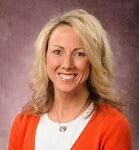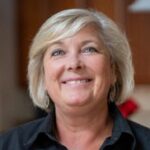Many districts have created graduate profiles of the future-ready skills their students will take with them after high school. The Sumner-Bonney Lake School District in Washington is now expanding that concept to its educators and administrators with its “Portrait of a Future Ready Leader.”

One idea driving the initiative is to use the lessons of the pandemic to guide the district’s leaders, teachers and students in preparing each other and the community for the opportunities and challenges of the future, Superintendent Laurie Dent says. “We need to lead in a way that is explicitly articulated so the community knows what it means to lead,” Dent says. “To meet the needs of volatile and uncertain markets, we have to lead in a way that’s agile and flexible and collaborative.”
Dent and her team’s efforts are one way District Administration’s latest “superintendents to watch” are making the future of K-12 much more flexible.
Future-ready flexibility
Sumner-Bonney Lake is a high-performing district with a 95% graduation rate that educators are laser-focused on raising to 100%. Getting there will require that educators continue to lead with as much flexibility as they displayed during the ups and downs of the pandemic. “We learned that to build trust with the community we had to communicate more often,” Dent says “It sounds simple but so many times we just assume people know what’s going on.”
The pandemic also boosted her team’s confidence in overcoming uncertainty and other challenges. “Now we really know how to take something that is destructive and turn it into something that is productive,” Dent adds. “We learned we can move on from failure.”
Superintendents Summit
The District Administration Superintendents Summit offers cutting-edge professional development to school district superintendents and other senior education executives to inspire innovation and leadership excellence in K-12 education. Upcoming events in this series:
Nov 9 – Nov 11: Omni La Costa Resort & Spa, Carlsbad, CA
Dec 14 – Dec 16: Ponte Vedra Inn & Club, Ponte Vedra, FL
The Portrait of a Future Ready Leader profile that Dent and her team are now developing prioritizes creativity, inclusivity, and preparing kids for the diverse and ever-changing global economy. Educators and students will move forward with a positive and optimistic mindset rather than fixating on deficits or using “deficit language.” “We want to start with ‘yes’ and see what’s possible instead of looking at what’s keeping us from doing something,” Dent says. “There’s so much in public education that’s very draconian, so the question is, how do we think differently, given the strengths we have?”
One of her top academic priorities is ensuring all students, from the highest achievers to the most at-risk, have access to a wide range of programs, including internships and highly personalized intervention programs. Dent and her educators believe they are getting better and better at providing targeted support to every student, beginning in the earliest grades. “When a high school student says, ‘I can’t take AP classes, I’m not smart enough,’ that thinking starts in elementary school,” Dent says. “We have to look at how we are breeding confidence in students through our language and through our curriculum.”
What keeps Dent up at night is student mental health and rising suicide rates after the isolation many young people experienced during the pandemic. The district has hired additional counselors and partnered with children’s healthcare providers. She and her educators are also strengthening an atmosphere of equity and inclusiveness so all students feel comfortable expressing their identities. “Leaders who display courage have a better chance at facilitating change,” she concludes. “They know how to communicate in a way that makes people feel valued and respected and part of the process—this pushes transformation forward.”
“Wonder Wednesdays” wins innovation award

Campbell Union School District teachers who urgently needed more planning time got relief from a new program called “Wonder Wednesdays.” The California district, which launched the program during the pandemic, brought in community experts, authors and parents to lead online lessons so teachers could spend more time planning.
Wonder Wednesdays, which won a Pivotal Practice Award from the California Department of Education, have continued since students returned in person. These authentic experiences allow students to apply their learning to real-world situations, Superintendent Shelly Viramontez says.
Shortly before the pandemic, Viramontez and her team—with help from the Stanford D.School—opened the Campbell School of Innovation, where the curriculum is based on the principles of design thinking. This practice has sparked high levels of student engagement because learners are driven to work through iterative solutions as they solve problems, Viramontez explains.
More from DA: Do the pros of banning cellphones in school outweigh the cons?
In one project at the school, kindergarteners and first-graders conduct empathy interviews with each other. They share situations that bug them—such as their parents making meals they don’t like for dinner—and prototype solutions. They improve their prototypes through several rounds of feedback and, as in the case above, come up with ways for students to help plan family dinner menus. “Innovation is not always doing something new or different,” Viramontez says. “It’s also iterating and getting better over time.”
Campbell Union School District’s educators are also working to normalize conversations about race and allow more voices from the community to be heard. When administrators realized that African American students were not making progress in math, Viramontez held a community forum to discuss anti-racism and antibias strategies. “It doesn’t matter what folks’ intent is, what matters is the impact,” she says. “We asked them the questions, ‘When is school working or not working for your child and what does that look like?'”
Extensive community partnerships are another way the district is working to provide more opportunities for all of its students. These partners span mental health counseling and other healthcare providers to a local community college that offers a 10-week course to help families better engage with their schools. That course, in fact, has spawned a second, “graduate-level” program to help parents become leaders who advocate for all families.
Another ongoing concern is that school districts are being saddled with more and more non-academic responsibilities, and principals, in particular, are experiencing an extraordinary amount of pressure, Viramontez says. When teachers see this, they are less ambitious about becoming building leaders. She and her administrators are therefore trying to remove some of the management tasks from principals so they can focus on instructional leadership. “I joke that in the role of the principalship in loco parentis has gone loco,” she says. “School districts have been saddled with a lot of responsibilities that are beyond teaching and learning.”







